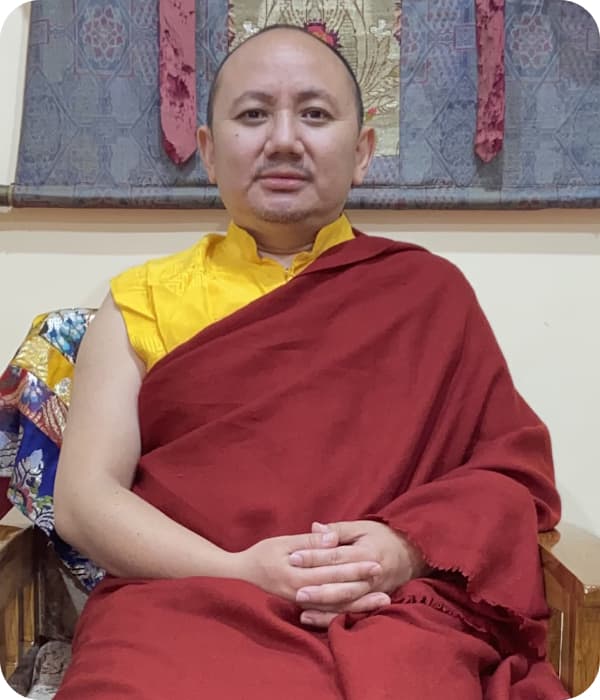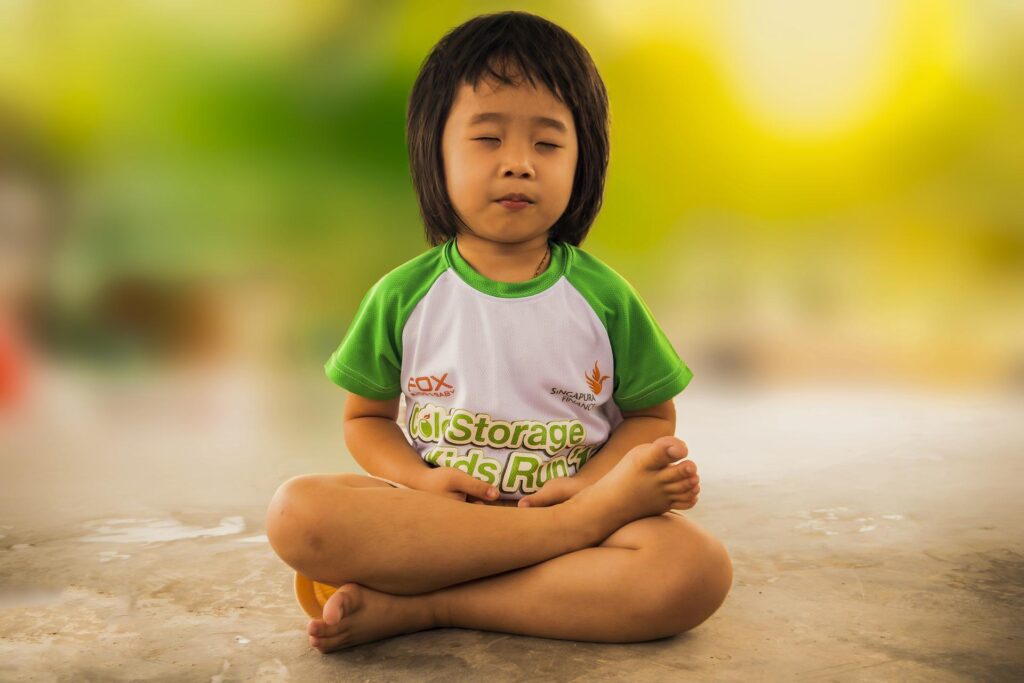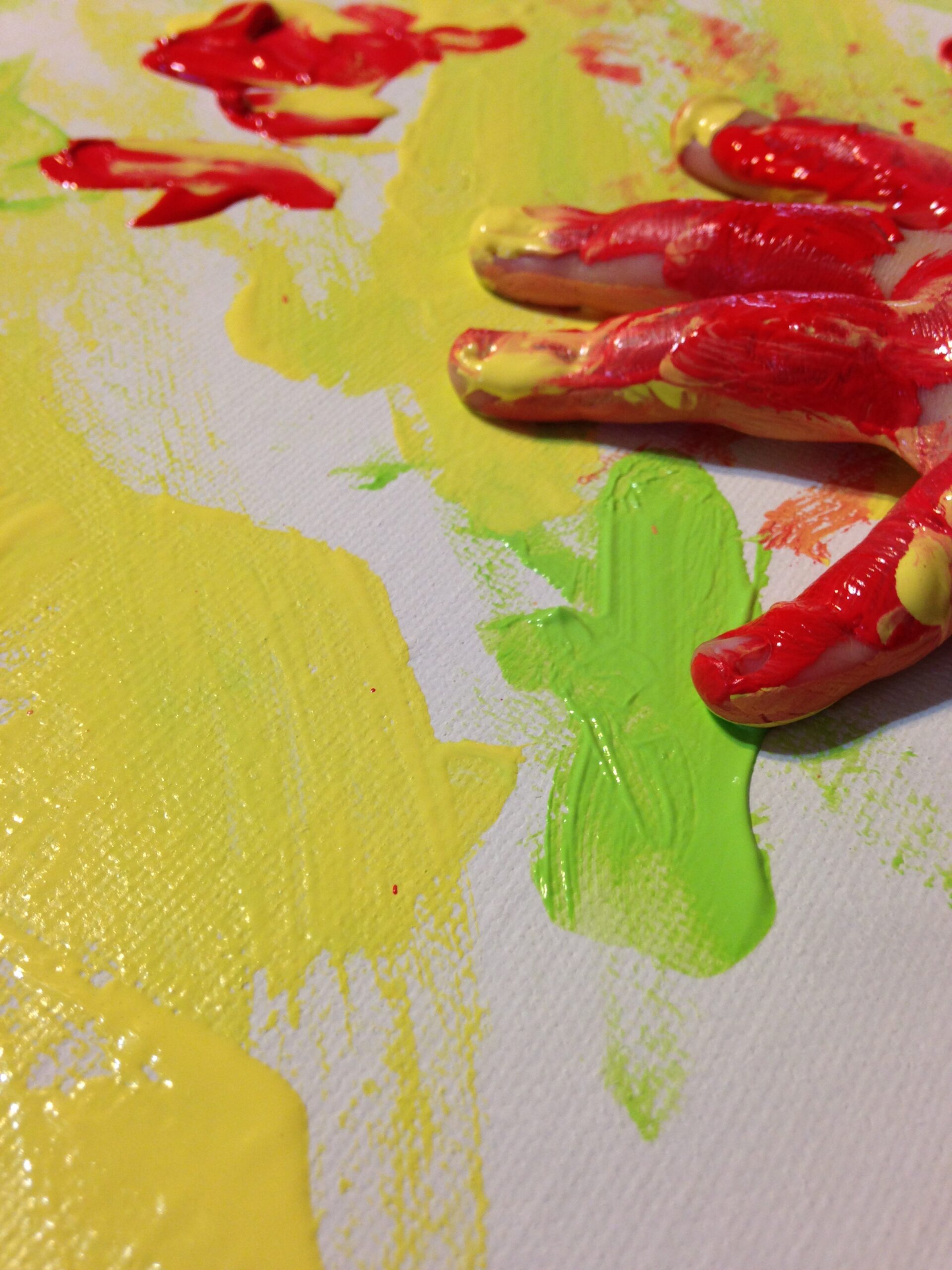Buddhist scholar and teacher, HH Tenzin Kunzang Jigme, the 7 th Taklung Matul Rinpoche talks about the importance and benefits of introducing children to meditation.

Since the spread of COVID-19, an ever-deepening mental health crisis has been one of the biggest issues around the world. Thus, it is important that we find a stable ground to offer our children in which they can flourish and grow. One of the most effective approaches to bringing up children that are calm, creative and anxiety-free is by offering them meditation lessons. The earlier you start them on this journey, the better it is, says Taklung Matul Rinpoche:
“We often talk about how to meditate but we rarely talk about how to introduce children to meditation. This would seem like a challenging idea, and I think it is. I had an idea of children doing what seemed like meditation in a school in England in 2014-15, where the curriculum was inspired by Shamata meditation and Vipassana meditation that Buddhism speaks a lot about. Shamata meditation is a tradition where you are told to concentrate on one particular object to calm the mind. They (the school) called it self-time instead of meditation as ‘meditation’ would be considered religious.
It is important to build an ability in children to meditate so that they can develop some control over their minds and emotions. Our emotions are unpredictable—we never know what comes along to derail us, and it’s important to have some control over them. To learn the skill, it is best to start when we are young, and our minds are not only innocent but also uncontaminated. This pristine condition of the mind helps you take the first steps on a meditation practice.
It may seem challenging to teach children how to meditate or introduce them to a form of meditation that they will do both regularly and willingly, but I believe it is possible. As children, we learn through imitation. Even when we play, it’s nothing less than imitation. I think it important that whether you are a parent or teacher, and particularly a parent, you influence children in the right way. It is important to bring up children in an environment in which you meditate from time to time, and you allow them to participate in what you are doing.
Perhaps you can make it simple and fun so that they are immediately interested. Later, you can also make a schedule, so they have some structure to go by. Gradually, you can hope that the child will pick up lessons along the way which will seep into his or her mind and eventually become a habit. This is how they can begin.

What parents can do is bring children to meditate for five minutes and tell them to focus on their breathing or simply have a quiet moment. Making meditation fun and easy for children is extremely important, and making children meditate as a family activity will help them develop it into a habit. Each child has a different disposition—some of them might develop a certain habit if you tell them what to do. Others may need you to help build a habit in them rather than just telling them what is important. And so, you must both talk about and do meditations with them. If they are bored by it, then don’t force them to continue as they may lose the very enthusiasm you need to create in them. That’s going to be harmful, and that is why we have to keep it simple, easy and a lot of fun so that children come to like the practice.
It’s a bit of a challenge to find that balance, but until you do, you have to figure out a variety of things. Knowing what you need to do rather than what you want to do is helpful. We first need to create curiosity and enthusiasm in our children. What you’re trying to do is ensure they don’t lose the enthusiasm to meditate. I think the other thing that we need to do is to have confidence developed within children. When we talk about confidence, we are not talking about being egotistical. This confidence has an element of humility in it. In fact, what makes us fearless is the fact that we are able to stay very close to the earth. That is why a sense of humility is important to have a fully developed confidence.
In order to have a sense of humility, it is extremely important to have as little self-entitlement as possible. I think hyper-individualistic societies have created this narrative of having to fight for our own rights. We should definitely fight for our rights, but you have to make sure that you are not led by only hyper-individualistic sentiments. And to do that, not being entitled is extremely important. To develop this characteristic, children have to develop sensitivity and connect with things that they have and value them.
I highly recommend an approach I call the Dharti Mata practice, where I tell people to collect some good soil, soft and moist, if possible—soil that can grow different varieties of plants and flowers. Using that soil, you go through the process of sensitizing parts of your emotions, recognizing that this is the soil that gives us so much. In Indian culture, there is the concept of the earth being the mother, and that’s where the term dharti mata (Mother Earth)comes from. Therefore, it definitely deserves respect and appreciation. If you don’t sensitize yourself, it’s just a heap of something. After you have made a proper connection, that soil can be then put into another pot so that you can plant something you like – be it a flower, some kind of tree or a plant. Ensure that you give the plant within it much love and care.
So, once you go through things meticulously in terms of planting a tree or a flower and watering them – make sure you do it very mindfully. That will also teach you a little bit of meditation. For example, in a situation like ours where top soil degradation is taking place worldwide and our environment is in danger, I think we must develop the desire to protect our environment to contribute towards necessary change. This can be the preliminary part of your meditation with your child.


Meticulous dancing and painting can also be meditative experiences for children
During the actual meditation, children can be given instructions about how to focus on their breathing. If the child is extremely active, you cannot make them sit and do “nothing” or watch their breath – that would be impossible. But perhaps, you could teach them how to dance so mindfully that they learn to focus on each and every move they make. Some types of dance movements require a good lot of concentration. You can make children do these things if they are very active. Or, if they are good at singing or painting, you can also make them do it with full concentration, which is an essential part of meditation. I think when we use the term meditation, we don’t always have to think about sitting down or not doing anything. It can be associated with other activities like painting and dancing. These can help improve a child’s concentration and gradually, one can hope that the child will have developed some calm to control their emotions and minds.
I think you will find your own ways and your own style of meditation, keeping in mind the type of psychology your child has. I hope and pray that you will find meaningful ways to introduce your child/children to meditation.”
To view Tenzin Kunzang Jigme, the 7 th Taklung Matul Rinpoche talk about the importance and benefits of introducing children to meditation Click Here

Tenzin Kunzang Jigme was formerly recognized by His Holiness the 14th Dalai Lama as the reincarnation of the sixth H.H. Taklung Matul Rinpoche, Thupten Jigme Choechok. He has received the traditional Taklung Kagyu teachings from His Holiness Taklung Shabdung Rinpoche Thupten Jangchup Choechok Nyima. He is one of the heads of the Taklung Kagyu order of Tibetan Buddhism. He received his formal training including Buddhist philosophical studies under the guidance of H. H. the Dalai Lama.






It’s so rare to come across such opportunity… A beautiful initiative.. Great work “The positivity project” team ! Thanks 🙏
It is our absolute pleasure to receive your feedback and we hope to continue our work with dedication.
A motivating discussion is definitely worth comment. Theres no doubt that that you should write more on this issue, it may not be a taboo subject but usually folks dont talk about these subjects. To the next! Kind regards!!
Thank you. It is our effort to bring expert knowledge on shaping our future generations with the right knowledge and approach.
Thanks for your blog, nice to read. Do not stop.
Thank you for your kind acknowledgement and encouragement